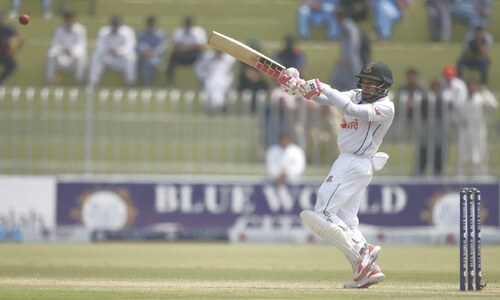ISLAMABAD, Nov 15: The National Electric Power Regulatory Authority has rejected constitution of or joining an inter-ministerial committee to review its judgments, saying this will erode its credibility, Dawn reliably learnt.
In a seven-page letter to the chief executive secretariat, the regulator has also accused the power utility Wapda of using pressure tactics “for regulatory capture,” a Nepra official confirmed.
“We have to keep all the stakeholders at an arms length, listen to their requirements in a just and transparent manner and provide a genuine relief to all the parties,” said the official.
The letter, said the official, was in response to Wapda demand that federal inter-ministerial committee comprising federal secretaries of water and power, Privatisation Commission and finance to review whether determinations of the regulator were valid and based on ground realities.
The chief executive secretariat had forwarded the Wapda demand early this month to Nepra for comments whether or not the government should go ahead with the utility’s proposal.
The Wapda had specifically mentioned the regulator’s directive to bring electricity tariff in Fata at par with other consumers across the country. It contended that the directive would increase total revenue from Fata to Rs12 billion per year from the current level of Rs3 billion.
The regulator, however, contended in the letter that the Wapda was parking all the losses in Fata’s account given the fact there were no electricity meters in tribal areas to prove actual consumption and also that federal government was providing subsidy to that area.
This situation is to persist unless meters are installed in Fata, the Nepra officials said.
The Wapda said this could create law and order problems for the government besides other socio-economic imbalances.
It had also pointed out that the issuance of distribution licences to Wapda’s companies and small power producers would create long-term problems for the utility. It suggested that the committee should also examine licensing and tariff issues to provide it relief.
The Nepra told the chief executive secretariat that it had always met genuine revenue requirements of the utility in the tariff determination but it “has to create a balance between the consumers and investors.”
If the utilities or powerful groups are allowed regulatory capture through pressure tactics or an independent quasi-judicial forum is to be influenced through committees and directives, then there was no need at all for its existence, said the letter.
The utilities around the world are run on economic considerations and market forces through cost cutting measures, downsizing and adjustments in development activities but unfortunately there is no such thing in Pakistan, the official said.
There is nothing unreasonable if the utility is asked to reduce line losses from 26 per cent to 25 per cent in a year’s time. “What Nepra can do is provide a comfort level where they can efficiently operate,” said the Nepra official.
















































Dear visitor, the comments section is undergoing an overhaul and will return soon.